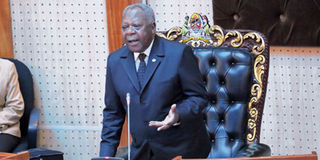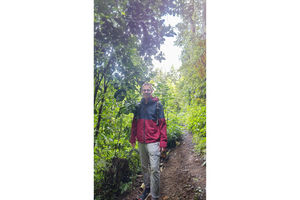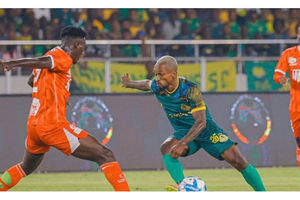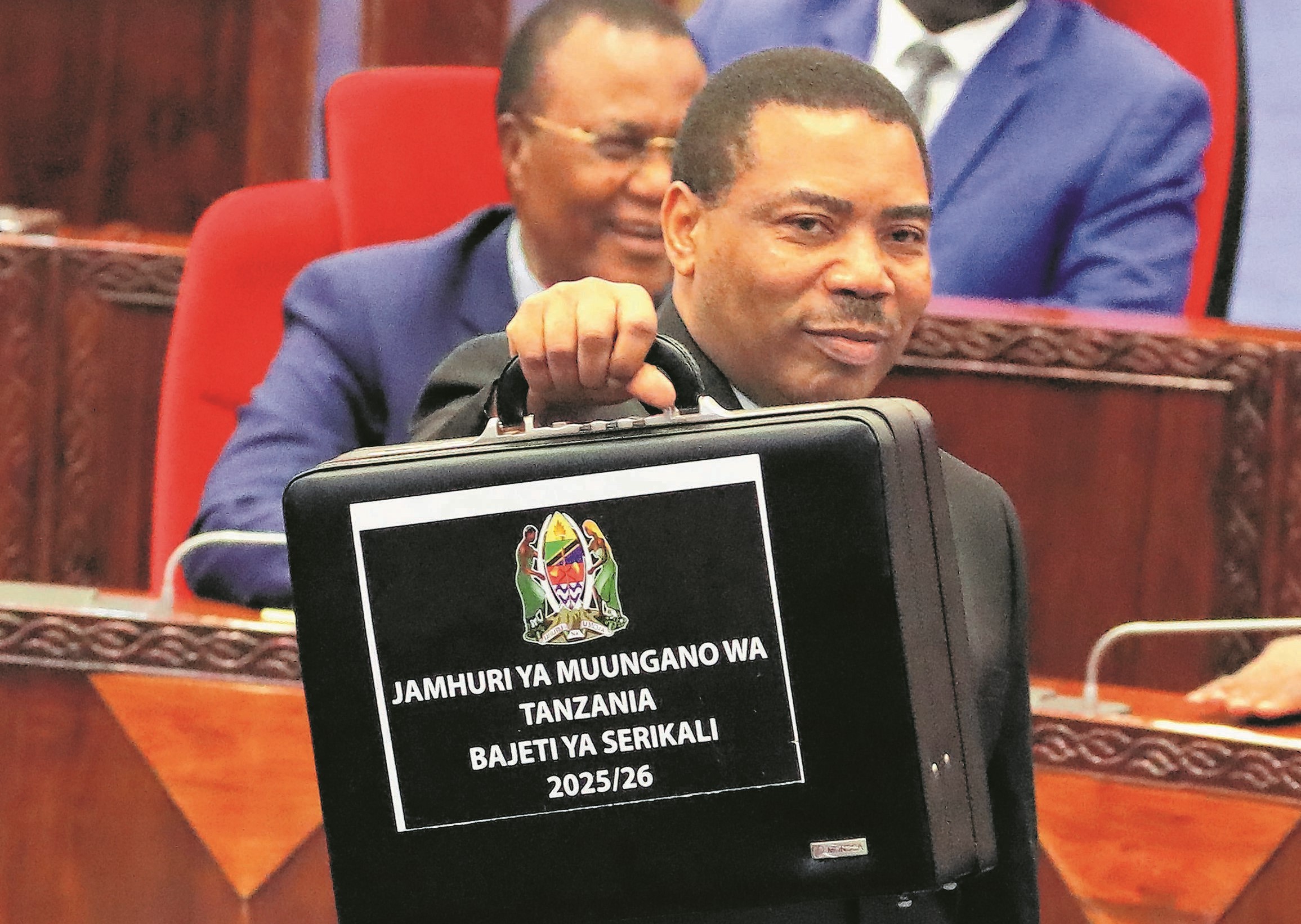COVER: Sitta’s concerns in case constitution process fails

Constituent Assembly chairman speaks at a past session Samuel Sitta. He is of the view that holding the General Election under the current constitution may be dangerous for the country’s peace and stability. PHOTO | FILE
What you need to know:
- Having a new constitution will save the country from probable chaos that may follow the General Election because of complaints on lack of independence of the electoral body
Arusha. If there is anything Mr Samuel Sitta is worried about most over the polarisation rocking the ongoing process of writing the new constitution, it is the country’s forthcoming General Election.
His worries as the chairman of the Constituent Assembly (CA) do not simply arise because he harbours presidential ambitions, but, according to him, if the country goes to the General Election without the new constitution the country’s peace and stability could be at stake.
Speaking during a special programme aired by a local TV station recently, Mr Sitta attributed Kenya’s 2007/08 deadly post-election violence to the collapse of a similar process.
He pleaded with the Coalition of the Defenders of the Constitution of the People -- popularly known in its Kiswahili acronym as Ukawa -- to return to the assembly to ensure rules of the much-awaited electoral game are streamlined beforehand to ensure free and fair elections.
The coalition walked out of the CA in April this year, accusing CCM of abusing its numerical strength in the House by imposing its own clauses in the Draft Constitution.
The CA members mostly from the ruling party have all along opposed a three-Union government proposal stipulated in the Second Draft Constitution for fear of increasing the cost of running the state, among others.
An independent electoral body equipped with fair rules and regulations will, according to Mr Sitta, prevent the country from plunging into civil strife as was the case with its northern neighbour.
Having an independent National Electoral Commission (NEC) has also fuelled the opposition’s demand for a new constitution.
Many opposition leaders are of the view that it is impossible to unseat CCM from the Magogoni Street without a credible body that can conduct free and fair elections.
In fact the main opposition party, Chadema, refused to recognise the 2010 presidential election results, blaming it all on the lack of an independent NEC.
The fear of the self-proclaimed former ‘Speaker of standards and speed’ also gripped the Commonwealth Parliamentary Association — Africa Region (CPA-AR).
The association had set aside a couple of its precious hours during its just ended 45th Conference in Arusha to deliberate on electoral reforms that would guarantee the conduct of free and fair polls on the continent.
The lawmakers observed that although many countries had embraced democratisation, they were yet to accomplish the necessary political reforms, especially electoral reforms.
While elections are supposed to anchor and ensure sustainable growth in democracies, they have become a liability in some African countries, a lawmaker from Uganda, Mr Jacob Oboth, said.
Mr Oboth, who is the chairman of Uganda Parliamentary Standing Committee on Rules, Privileges and Discipline explained that instead of institutionalising democracy, elections had fuelled political instability.
“Consequently, the question is how Africa’s electoral systems can be reformed to guarantee the conduct of free and fair elections,” he said.
Some African countries have demonstrated an increase in democratic maturity by organising relatively transparent and peaceful elections, he said, citing credible polls held in Zambia and Tunisia in September and October 2011, respectively.
In contrast, polls in Nigeria were marred by post-election violence which caused deaths of up to 1,000 people in the northern parts of the country.
Election dispute in November 2011 almost plunged the Democratic Republic of Congo (DRC) into a crisis, threatening a return to civil war.
The conduct of free and fair elections though is a necessary step towards democratisation, it is not by itself sufficient to consolidate democratic governance, concludes Mr Oboth, suggesting that other factors, which also play an important role in strengthening democracy, must be fully embraced.
“The utility of elections in a constitutional democracy rests on several pillars, all of which are shaky in Africa,” said the Ugandan lawmaker, as he enumerated some of the challenges facing the elections on the continent.
They include ethnicity of electoral politics; lack of credible voter registration systems; lack of electoral financing, proper equipment and other logistics; manipulation of demography and electoral violence.
When an election is shrouded in irregularities, malpractices and other fraudulent misconduct, not only is the legitimacy of the government arising from the election put into question, but adherence to the best practices for governance is also foreclosed.
“Such administration is likely to encourage in all forms of corruption,” he said.
He insisted the need for the development of benchmarks for robust independent and accountable election management bodies with adequate technical, financial and human resources capacity as stipulated in the Norms and standards for elections in the Southern Africa Development Community (Sadc).
“African governments need to develop enforceable codes of conduct for political parties, including clear definition of election offences and related sanctions.
“This should be accompanied by fixed time frames for the disposal of election-related disputes,” proposed the Ugandan lawmaker, adding that agreed guidelines for access to the media and media coverage of elections and related events should be developed.
The Ugandan lawmaker’s observation was reflected in a statement by the chairman of the Constitutional Review Commission, Judge (rtd) Joseph Warioba, on Monday when he likened elections held in Tanzania in recent years to ‘auction marts’.
Judge Warioba literally meant during a live televised debate on the fate of the ongoing process of writing a new constitution that the ‘piper called the tune’ in recent years’ polls in Tanzania.
Officials of the National Electoral Commission have, however sought to dispel the notion that the NEC is not independent. NEC chairman Damian Lubuva told reporters last month in Arusha that the body he chairs is not controlled by the State House neither does it receive orders from the President in its day-to-day operations.
He told journalists that the Commission was an autonomous body which operated within the confines of the law which established it and rules governing its activities.
He affirmed that the notion that NEC operated through ‘remote control’ by the ruling party was misguided and should not be entertained because it has no grain of truth.
The retired judge added that the Commission has embarked on updating the voters’ register and opting for Biometric Voter Registration (BVR) not due to pressure from higher government authorities as some people claim.
“We have been forced to prepare a new voter register because of complaints on the shortcomings of the old register from various stakeholders,” he told journalists during a brief on preparations for next year’s polls.
The Electoral Commission was established following recommendations of a Presidential Commission known as the Nyalali Commission in 1992 on whether or not Tanzania should continue with Single Party System.
The Presidential Commission recommended the Multiparty System and the formation of an Electoral Commission which would be responsible for the conduct of elections.
The Constitution of 1977 had to be amended to provide for the creation of NEC.
The Political Parties Act of 1992 was thereafter enacted to regulate the formation and registration of Political Parties.
The National Electoral Commission was also established under Article 74(1) of the said Constitution to supervise and coordinate the conduct of Presidential, Parliamentary and Councillors elections.




